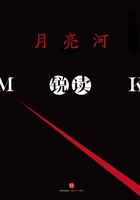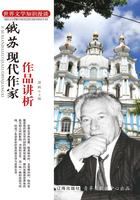THE FORM of government for any given country being (within certain definite conditions) amenable to choice, it is now to be considered by what test the choice should be directed; what are the distinctive characteristics of the form of government best fitted to promote the interests of any given society.
Before entering into this inquiry, it may seem necessary to decide what are the proper functions of government; for, government altogether being only a means, the eligibility of the means must depend on their adaptation to the end. But this mode of stating the problem gives less aid to its investigation than might be supposed, and does not even bring the whole of the question into view. For, in the first place, the proper functions of a government are not a fixed thing, but different in different states of society; much more extensive in a backward than in an advanced state. And, secondly, the character of a government or set of political institutions cannot be sufficiently estimated while we confine our attention to the legitimate sphere of governmental functions. For though the goodness of a government is necessarily circumscribed within that sphere, its badness unhappily is not. Every kind and degree of evil of which mankind are susceptible may be inflicted on them by their government; and none of the good which social existence is capable of can be any further realised than as the constitution of the government is compatible with, and allows scope for, its attainment.
Not to speak of indirect effects, the direct meddling of the public authorities has no necessary limits but those of human existence; and the influence of government on the well-being of society can be considered or estimated in reference to nothing less than the whole of the interests of humanity.
Being thus obliged to place before ourselves, as the test of good and bad government, so complex an object as the aggregate interests of society, we would willingly attempt some kind of classification of those interests, which, bringing them before the mind in definite groups, might give indication of the qualities by which a form of government is fitted to promote those various interests respectively. It would be a great facility if we could say the good of society consists of such and such elements; one of these elements requires such conditions, another such others; the government, then, which unites in the greatest degree all these conditions, must be the best. The theory of government would thus be built up from the separate theorems of the elements which compose a good state of society.
Unfortunately, to enumerate and classify the constituents of social well-being, so as to admit of the formation of such theorems, is no easy task. Most of those who, in the last or present generation, have applied themselves to the philosophy of politics in any comprehensive spirit, have felt the importance of such a classification; but the attempts which have been made towards it are as yet limited, so far as I am aware, to a single step. The classification begins and ends with a partition of the exigencies of society between the two heads of Order and Progress (in the phraseology of French thinkers); Permanence and Progression in the words of Coleridge. This division is plausible and seductive, from the apparently clean-cut opposition between its two members, and the remarkable difference between the sentiments to which they appeal. But I apprehend that (however admissible for purposes of popular discourse) the distinction between Order, or Permanence, and Progress, employed to define the qualities necessary in a government, is unscientific and incorrect.
For, first, what are Order and Progress? Concerning Progress there is no difficulty, or none which is apparent at first sight. When Progress is spoken of as one of the wants of human society, it may be supposed to mean Improvement. That is a tolerably distinct idea.
But what is Order? Sometimes it means more, sometimes less, but hardly ever the whole of what human society needs except improvement.
In its narrowest acceptation Order means Obedience. A government is said to preserve order if it succeeds in getting itself obeyed. But there are different degrees of obedience, and it is not every degree that is commendable. Only an unmitigated despotism demands that the individual citizen shall obey unconditionally every mandate of persons in authority. We must at least limit the definition to such mandates as are general and issued in the deliberate form of laws. Order, thus understood, expresses, doubtless, an indispensable attribute of government. Those who are unable to make their ordinances obeyed, cannot be said to govern. But though a necessary condition, this is not the object of government. That it should make itself obeyed is requisite, in order that it may accomplish some other purpose. We are still to seek what is this other purpose, which government ought to fulfil, abstractedly from the idea of improvement, and which has to be fulfilled in every society, whether stationary or progressive.















